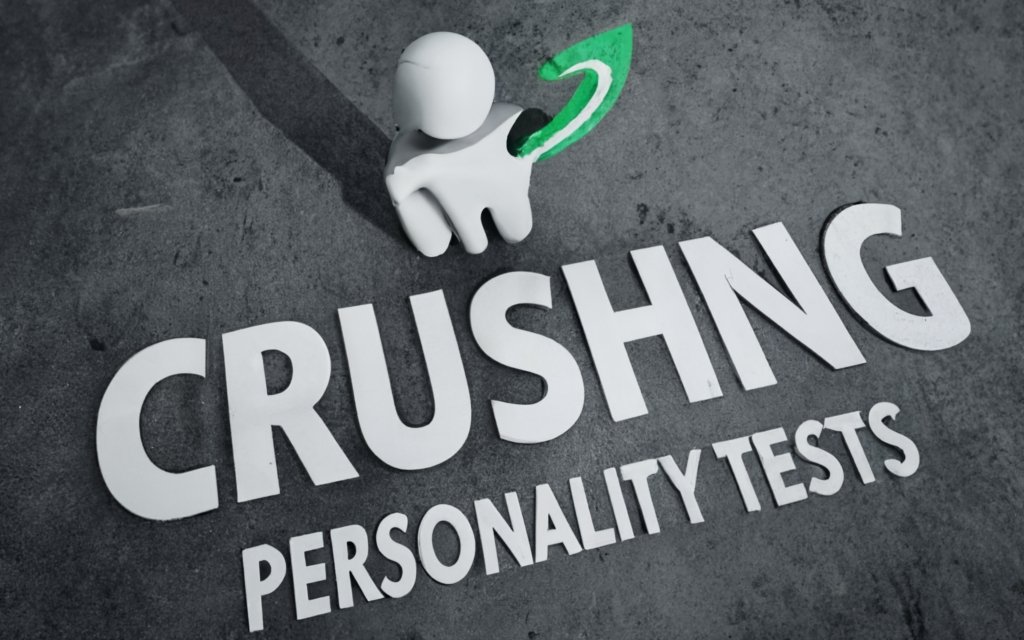Landing a sales job often requires excelling on a sales personality test. This comprehensive guide covers everything you need to know about acing these pre-employment assessments.
Learn about the most common sales personality tests like Myers-Briggs, DiSC, and Caliper. Discover the key traits like drive, resilience, and competitiveness that employers look for. Get tips for preparing, understanding question types, and accurately conveying your abilities. Whether you’re an aspiring sales rep or a sales manager hoping to refine your hiring process, use this guide to master sales personality tests.
Crush your next sales personality assessment and showcase your innate potential with the right combination of preparation, self-awareness, and authenticity. Let’s get started!
Understanding Sales Personality Tests
Sales personality tests are a common part of the hiring process, especially for sales roles. These assessments help employers evaluate whether a candidate has the right traits and behaviors to succeed in the position.
What is a Sales Personality Test?
A sales personality test is a psychological assessment designed to measure key personality traits and attributes that are important for success in sales. These tests aim to provide insight into how well a candidate’s natural behavioral tendencies match the demands of a sales role.
Sales personality tests typically ask candidates a series of questions and rate their responses based on scales tied to specific traits like assertiveness, sociability, motivation, resilience, and competitiveness. The tests measure both natural inclinations as well as learned behaviors that can impact sales performance.
Unlike general cognitive ability tests, sales personality tests focus specifically on distinguishing personality features and tendencies rather than raw intelligence or problem-solving skills. They help build a behavioral profile of the candidate to assess fit.
Why Do Employers Use Sales Personality Tests?
There are a few key reasons employers rely on sales personality tests:
- Screen applicants – The tests help narrow down applicants and identify those who have the baseline personality traits needed to succeed. This makes the hiring process more efficient.
- Assess job fit – Sales roles require a specific set of behavioral attributes to achieve targets and quotas. Sales personality tests help gauge fit.
- Reduce turnover – When candidates are a good match for the sales job on a personality level, they tend to stay longer. This reduces churn and hiring costs.
- Improve performance – Salespeople who possess key traits like drive, persuasiveness, and resilience statistically perform better. The right behavioral fit impacts sales results.
- Inform training – The tests help employers identify strengths to leverage and development areas to work on through coaching and training initiatives.
Different Types of Sales Personality Test Questions
Sales personality tests can employ different types of questions to assess behavioral traits, including:
- Self-assessment questions – These present a statement like “I’m very competitive” and have the candidate rate themselves on a scale from “strongly disagree” to “strongly agree.”
- Scenario-based questions – These describe a hypothetical sales situation and ask how the candidate would respond. There are no absolute right or wrong answers.
- Trait ranking questions – These provide a list of traits like “ambitious,” “outspoken,” and “modest” and ask the candidate to rank them from “most” to “least” descriptive of themselves.
- Personal experience questions – These elicit open-ended responses based on the candidate’s real sales experiences, background, and natural tendencies.
The combination of question types provides a well-rounded assessment of a candidate’s inclination toward different sales-related behaviors and attributes. Preparing for the variety helps candidates demonstrate their strengths more accurately.

7 Popular Sales Personality Test Types
When preparing for a sales role, you’re likely to encounter some well-known sales personality tests. Here are 7 popular options:
Myers-Briggs (MBTI)
The Myers-Briggs Type Indicator examines an individual’s preferences across 4 dichotomies:
- Introversion (I) – Extroversion (E): Where someone focuses their attention and draws energy. Introverts focus inward on concepts and ideas. Extroverts draw energy from interactions with people.
- Sensing (S) – Intuition (N): How someone takes in information. Sensing types focus on concrete facts and details. Intuitive types look at patterns and insights.
- Thinking (T) – Feeling (F): How someone makes decisions. Thinking types make logical, objective decisions. Feeling types weigh values and compassion.
- Judging (J) – Perceiving (P): How someone approaches life. Judging types prefer structure and firm decisions. Perceiving types keep options open and are adaptable.
Based on preferences, the test assigns one of 16 personality types. For sales roles, “ESTJ” and “ESTP” types are often considered good fits given their extraversion and tendency toward action. But introverts can also make successful salespeople.
DiSC Assessment
The DiSC assessment categorizes individuals into four main behavioral styles based on preferences exhibited in a work setting:
- Dominance (D): Direct, firm, forceful, strong-willed
- Influence (I): Outgoing, enthusiastic, optimistic, lively
- Steadiness (S): Even-tempered, accommodating, patient, tactful
- Conscientiousness (C): Analytical, reserved, precise, systematic
Sales managers can use DiSC results to build teams with complementary strengths. For example, pairing “D” and “I” types with “S” types balances drive and influence with support and stability.
The Caliper Profile
The Caliper Profile measures 22 behavioral traits linked by decades of research to success in business roles. Some key traits assessed include:
- Assertiveness: Forcefully expressing views and needs
- Sociability: Comfort interacting frequently with others
- Ego-Drive: Motivation deriving from within one’s self
- Urgency: Feel of energy and preference for fast action
- Creativity: Tendency to think abstractly and solve intellectually complex problems
- Empathy: Identifying with others and understanding different perspectives
Caliper results provide an in-depth personality profile aligned to requirements of the specific sales position.
Hogan Personality Inventory (HPI)
The HPI evaluates everyday behavior in the workplace across 7 dimensions:
- Adjustment: Confidence, self-esteem, and composure
- Ambition: Taking initiative, competitiveness, and leadership
- Sociability: Tendency to seek out social interactions
- Interpersonal Sensitivity: Ability to maintain relationships and get along well with others
- Prudence: Self-discipline, responsibility, and thoroughness
- Inquisitive: Imagination, curiosity, and creative thinking
- Learning Approach: Enjoyment of academic and continuous learning
High scorers in adjustment, ambition, sociability, and interpersonal sensitivity tend to achieve greater success in jobs like sales that require persuasion skills and building rapport.
Sales Genomix
It evaluates traits across 5 main competencies:
- Drive: Ambition, motivation, work ethic, and accountability
- Influence: Persuasiveness, communication skills, assertiveness, and ego-drive
- Methodical: Organization, analytical skills, process orientation
- Relationships: Empathy, collaboration, agreeableness, and sociability
- Adaptability: Resilience, flexibility, openness to ideas, and learning approach
Sales Genomix rates individuals on suitability for 25+ sales roles and provides benchmarking.
16 Personalities (16PF)
The 16PF Questionnaire maps an individual’s personality across 16 traits under the acronym
WARM+2C7EX3A4T5UP
- Warmth: Interest in others, empathy, and developing relationships
- Reasoning: Problem-solving, critical thinking, and idea generation
- Abstractness: Imagination, curiosity, and creative thinking
- Emotional Stability: Composure, confidence, and resilience to stress
- Dominance: Forcefulness, decisiveness, and competitive drive
- Liveliness: Social boldness, spontaneity, and high energy
- Rule-Consciousness: Self-discipline, dutifulness, and adherence to principles
- Sensitivity: Caring, perceptiveness, and avoidence of conflict
- Vigilance: Alertness, analytical skills, and attention to detail
- Openness to Change: Adaptability, flexibility, and openness to new ideas
- Self-Reliance: Independence, self-sufficiencey, and self-motivation
- Perfectionism: Organization, precision, and goal focus
- Tension: Insecurity, stress, and worry
For sales, results like high warmth, dominance, liveliness, and vigilance indicate a good fit. But other traits like sensitivity and perfectionism also have relevance in sales contexts.
The Big Five Personality Test
The Big Five framework assesses 5 core personality aspects:
- Openness: Curiosity, creativity, and preference for variety
- Conscientiousness: Self-discipline, responsibility, and attention to detail
- Extraversion: Outgoing, assertive, and energetic disposition
- Agreeableness: Cooperation, trust, and concern for social harmony
- Neuroticism: Tendency toward instability, anxiety, and negative emotions
Sales research shows extraversion strongly predicts sales performance. But balanced scores across all five dimensions tend to produce the most effective sales behaviors overall.
As we can see, sales personality tests come in many forms. But the most predictive focus on traits like drive, sociability, resilience, empathy, ego-strength, and competitiveness. Preparing for these recurring themes allows candidates to accurately convey their potential.

Key Traits Employers Look For
When evaluating sales personality tests, employers keep an eye out for key traits that are highly predictive of success in sales roles. Here are 7 traits that can make or break sales performance:
Confidence
Self-assuredness and believing in one’s abilities help drive proactive sales behaviors like cold calling, networking, and asking for referrals. Salespeople need confidence to handle rejection, demonstrate expertise, overcome objections, and close complex deals. Tests often assess confidence through questions about composure in high-pressure situations.
Persuasiveness
Strong persuasion skills allow salespeople to influence prospects at each stage of the buying journey. Tests evaluate persuasiveness by looking at drive, communication abilities, and assertiveness. Persuasive salespeople excel at framing benefits compellingly, overcoming resistance, and nailing the close.
Motivation
Persistence and work ethic separate good salespeople from great ones. Motivation questions gauge aspects like ambition, competitiveness, accountability, and the ability to work independently. Highly motivated sales reps pursue leads tirelessly and don’t take “no” for an answer.
Resilience
Sales inevitably involves rejection and disappointment. Resilient salespeople take failures in stride and bounce back quickly. Sales personality tests assess resilience through questions about composure, optimism, and dealing constructively with setbacks. This mental toughness allows top sales reps to power through down periods.
Empathy
Connecting with prospects requires understanding needs and perspectives. Sales tests evaluate empathy by looking at interest in others, avoiding conflict, and building rapport. Salespeople with high empathy ask smart questions, listen closely, and provide solutions tailored to the buyer.
Competitiveness
Successful sales roles demand a competitive spirit and drive. Assessment questions gauge aspects like taking initiative, embracing challenges, and pushing to exceed targets. Competitive sales reps turn the job into a game they want to win through hard work and skill.
Assertiveness
While empathy is crucial, salespeople also need assertiveness to influence outcomes. Tests assess assertiveness through questions about taking charge, dealing with rejection, directing conversations, and pressing for decisions. Assertive sales reps ask for business with confidence and close sales effectively.
The higher candidates score on these key sales traits, the more likely they are to thrive in fast-paced, high-pressure sales environments. Preparing for questions related to these 7 traits allows candidates to excel on sales personality tests.
How to Prepare for a Sales Personality Test
Preparing thoroughly for a sales personality test improves your chances of showcasing your suitability for the job. Here are 7 tips:
Understand the Role
Carefully review the sales job description and research the company to grasp the specific demands of the role. Typical key requirements are skills like active listening, building rapport, handling rejection, meeting quotas, and managing pipelines. Understanding the core sales skills needed will help you present yourself accurately.
Research the Company Culture
Sales culture and values vary across companies. Some have hard-charging “hunters” while others focus on nurturing long-term relationships. Read reviews and talk to employees to discern the company’s style. Tailor your responses on the test to match their particular sales environment.
Be Honest
Answer all test questions truthfully. Trying to fake responses aligned with the sales role will likely produce inconsistencies that decrease your scores. Authenticity allows your innate strengths necessary for sales success to shine through.
Practice Sample Tests
Take sales personality tests available online so you are familiar with the types of questions asked. Reviewing sample questions reduces test anxiety and helps you demonstrate your abilities more comfortably on the actual assessment.
Play to Your Strengths
When answering questions, emphasize your core sales-related strengths like drive, resilience, listening skills, competitiveness, and persuasiveness. Back up responses with real examples of how these traits have fueled your sales accomplishments.
Address Your Weaknesses
If you have weaknesses like lower sociability or impatience, acknowledge them on the test but also reflect on steps you’ve taken to manage them. Demonstrating self-awareness and a commitment to growth is impressive.
Get Plenty of Rest
Being alert and focused while taking the personality test optimizes your results. Make sure to get a good night’s sleep beforehand and avoid distractions during the assessment. Eat a balanced meal and drink water to energize your mental acuity.
With preparation and self-knowledge, you can ace the sales personality test. Research the role and company, play up your sales strengths, and present your authentic self. This builds a personality profile predictive of sales success.
Tips for Passing a Sales Personality Test
Personality tests are a predictable part of the process when interviewing for a sales role. Here are 5 tips to help you pass the sales personality test:
Read Questions Carefully
Make sure you fully understand what each question is asking before responding. Missing subtleties or not reading the full question can cause you to provide inaccurate answers that don’t reflect your abilities. Slow down, and don’t rush through the test.
Avoid Contradictions
Sales personality tests often ask similar questions in different ways. Make your responses consistent to show self-awareness and honesty. If you rate yourself highly on “confidence” in one question but poorly on “poise under pressure” later, it will raise concerns.
Don’t Overthink Answers
Go with your gut reactions to questions rather than overanalyzing them. Changing responses can indicate indecisiveness. Trust your instincts, as they provide the most accurate insights into your personality and motivations.
Watch for Double Negatives
Questions containing negatives like “I don’t dislike working alone” can trip you up. Untangle the phrasing carefully before responding to ensure you are characterizing yourself accurately. Rushing through negatively-framed questions can backfire.
Be Mindful of Time
Most sales personality tests are untimed, but don’t spend endless time deliberating over each item. Sticking to a reasonable pace where you think through but don’t agonize over questions allows your natural tendencies to shine through most effectively.
Preparing for sales personality tests is about having the self-awareness to showcase your sales talents honestly. By avoiding contradictions, watching for tricks, and responding sincerely, you can leverage these tests to land your next sales role. Relax, trust your abilities, and you’ll do great.

How Personality Tests Are Scored and Evaluated
Sales personality assessments provide extensive data on a candidate’s behavioral profile and tendencies. Here’s an overview of how the results get scored and used:
Trait Measurement
For each trait measured, candidates are given a score on a scale showing where they fall relative to the general population. For example, if you score in the 90th percentile for competitiveness, you are more competitive than 89% of people.
Scores are based on patterns in your responses. Consistently choosing answers indicative of a trait like resilience leads to a high score. Outliers get flagged for further review.
Job Fit Comparison
Your trait scores get compared to an ideal range determined for the sales position through statistical analysis. The fit analysis indicates how well your traits align with traits of top performers in the specific sales role at the company.
usually provide an overall “job match” score as a percentage, as well as noting your strongest and weakest trait alignments. Some also benchmark your results to other applicants.
Hiring Considerations
While sales personality tests provide valuable insights, most companies use them as just one input into hiring decisions combined with resumes, interviews and other assessments.
However, scoring poorly on traits considered critical for the open sales role, like self-motivation or persuasiveness, can eliminate you from consideration. Results help narrow the field to the most solid candidates.
To make the final hiring decision, your test results get reviewed alongside your experience, domain knowledge, education and communication skills. The goal is to hire salespeople whose qualifications and personalities fit hand-in-glove.
Preparing for how you’ll be evaluated allows you to check the right boxes on sales personality tests and demonstrate your potential. Understand the role, play to your strengths, and highlight your sales abilities.

Using Test Results for Career Growth and Development
While sales personality tests help determine hiring suitability, their utility doesn’t end once you’ve landed the job. Ongoing career growth and development can be fueled by continually optimizing your strengths and improving your weaker areas revealed by the assessments.
Leveraging Strengths
Understand which traits you score highly on so you can maximize them in your sales strategy. For example, if you are highly empathetic, leverage that in bonding deeply with customers. If you are very competitive, set aggressive goals to energize your drive. Blend and accentuate your natural talents.
Overcoming Weak Spots
Complement yourself by teaming up with colleagues who have strengths in areas you are weaker in. Or proactively seek out training to improve skills that don’t come as naturally. For instance, public speaking courses can build persuasion abilities.
Seeking Out Training
Take inventory of your development areas and research trainings, mentorships, shadowing programs, and stretch assignments that will build those competencies. Pursue internal opportunities and external seminars to round out your skillset.
Building the Right Team
As a sales manager, you can utilize your reps’ personality test results to assemble a team with complementary strengths. Balance introverts with extroverts, competitive drivers with nurturing supporters, and abstract thinkers with concrete planners. This diversity of thought and skill creates an adaptable, high-performing sales team.
Ongoing use of sales personality tests enables both employees and managers to continually optimize talent. Assessments illuminate strengths to leverage and gaps to fill. By taking a growth mindset approach, sales professionals can reach their utmost potential.
Key Takeaways
Sales personality tests allow both candidates and employers to understand innate tendencies and motivations that impact sales success. Mastering these assessments enables you to:
- Learn the most common sales personality tests like Caliper, DiSC, and Myers-Briggs
- Understand the key sales traits employers look for like drive, resilience, and empathy
- Prepare strategically by researching the role, company, and test formats
- Provide consistent, honest responses aligned with sales position requirements
- Use results to keep developing skills and optimize your sales talents
- Leverage your natural strengths and address any gaps through training
- Build well-rounded sales teams with colleagues who complement your skills
With preparation and self-awareness, sales personality tests allow you to demonstrate your potential accurately. Focus on showcasing your true talents, motivations and abilities throughout the process.
Frequently Asked Questions
What are the most common sales personality tests?
Some of the most widely used sales personality assessments include the Caliper Profile, DiSC, Myers-Briggs (MBTI), Hogan Personality Inventory (HPI), and Sales Genomix.
What traits do sales personality tests measure?
Common traits measured include confidence, motivation, competitiveness, empathy, resilience, persuasiveness, assertiveness, and sociability. Tests aim to evaluate traits tied to sales success.
How can I prepare for a sales personality test?
Research the role and company, understand the test formats, take practice tests, emphasize your sales strengths, address weaknesses, and provide honest, consistent responses.
What do high scores on sales personality tests indicate?
High scores mean your natural tendencies strongly align with traits associated with success in the sales role. You are likely well-suited personality-wise but other factors also determine hiring.
Can I fail a sales personality test?
They are not pass/fail. However, very low scores on critical traits needed for the sales job may eliminate you from consideration. Hiring managers look for overall fit.
What should I do if I score low on certain traits?
Use it as a developmental opportunity. Seek out training, mentors, and team members who complement you by being strong in areas you are weaker in. Use the test to guide growth.
How accurately can tests assess my personality?
Sales personality tests are well-validated but not 100% accurate. Answer honestly and thoughtfully. Results are a data point, not the sole determinant of your potential. Take them as helpful insights.

